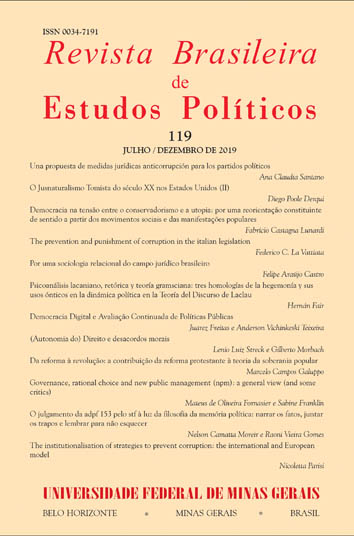Governance, rational choice and New Public Management (NPM): a general view (and some critics)
Résumé
This article aims to study the New Public Management (NPM), one of the main trends associated to neoliberalism. It studies governance to show its general, wider and abstract scope. It also focuses on the Rational Choice as an important theory about governance, a basis for NPM. And it observes the neoliberal foundations of NPM, showing critical aspects of its real practice. Methodology: hypothetical-deductive method of research, with a qualitative and critical approach and bibliographic-documental research technique. As results of this research, we can conclude that: i) the ideological usage of NPM has been expressed in a culture of minimal state and government - but in practice, such culture, when embossing implemented reforms, seldom reverted the role of the state, destroyed social safety nets, and placed the tax burden on the working majority rather than on the wealthy elite; ii) advocates for NPM have Western-shaped minds, generally making erroneous assumptions about institutions and cultures, which may be present in Anglo-American countries, but not in other culturally different ones; iii) in practice, NPM reforms were imposed to low-income countries by donor institutions to adjust their states for good governance - but those reforms did not solve problems with inefficiency and corruption. This work is original and valuable because it shows that even when public policies highlight the importance of less state intervention, solid norms and institutions are always necessary, and because it helps demystifying discourses that simply put that less state/more market politics can be valuable everywhere.


